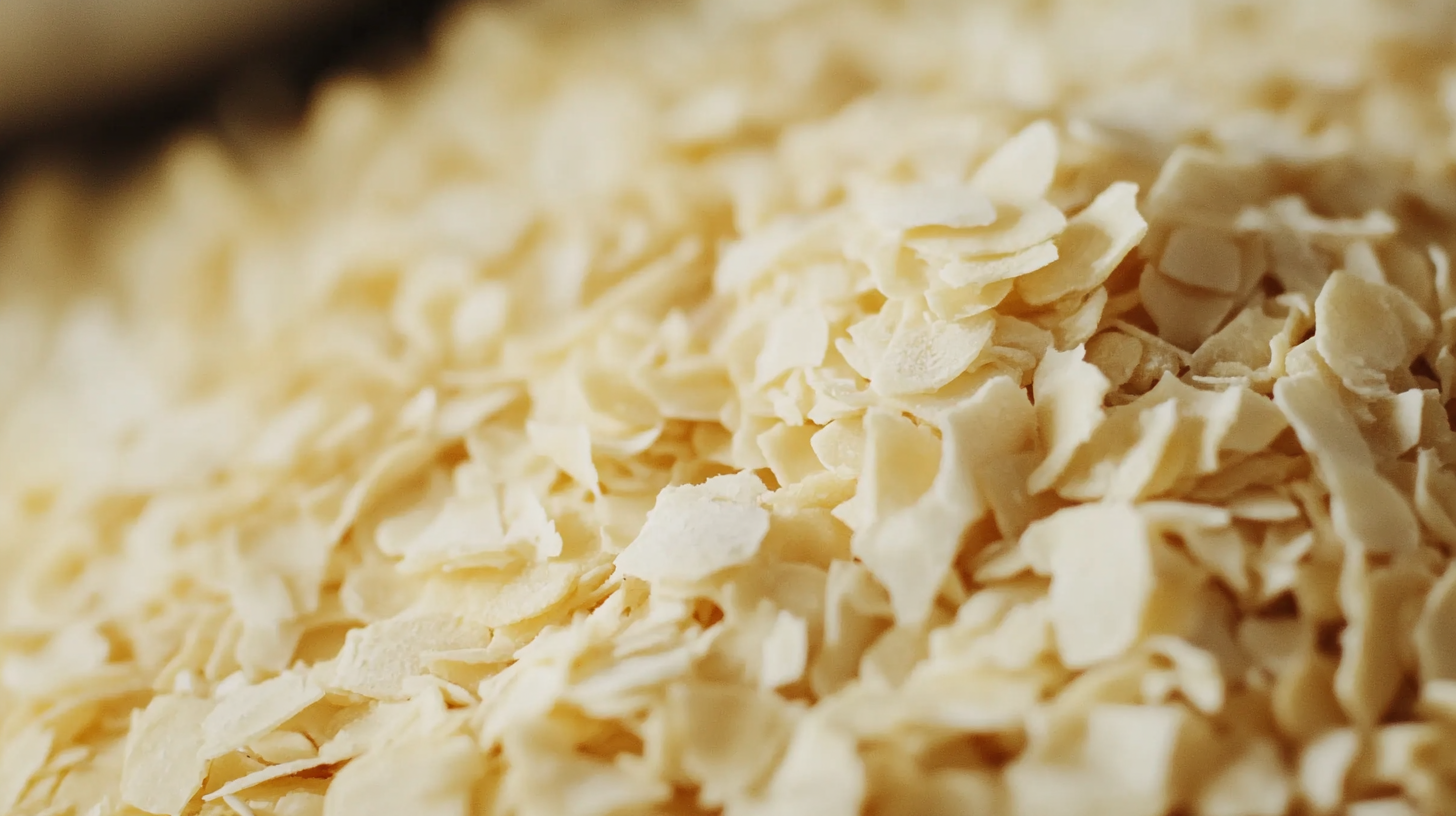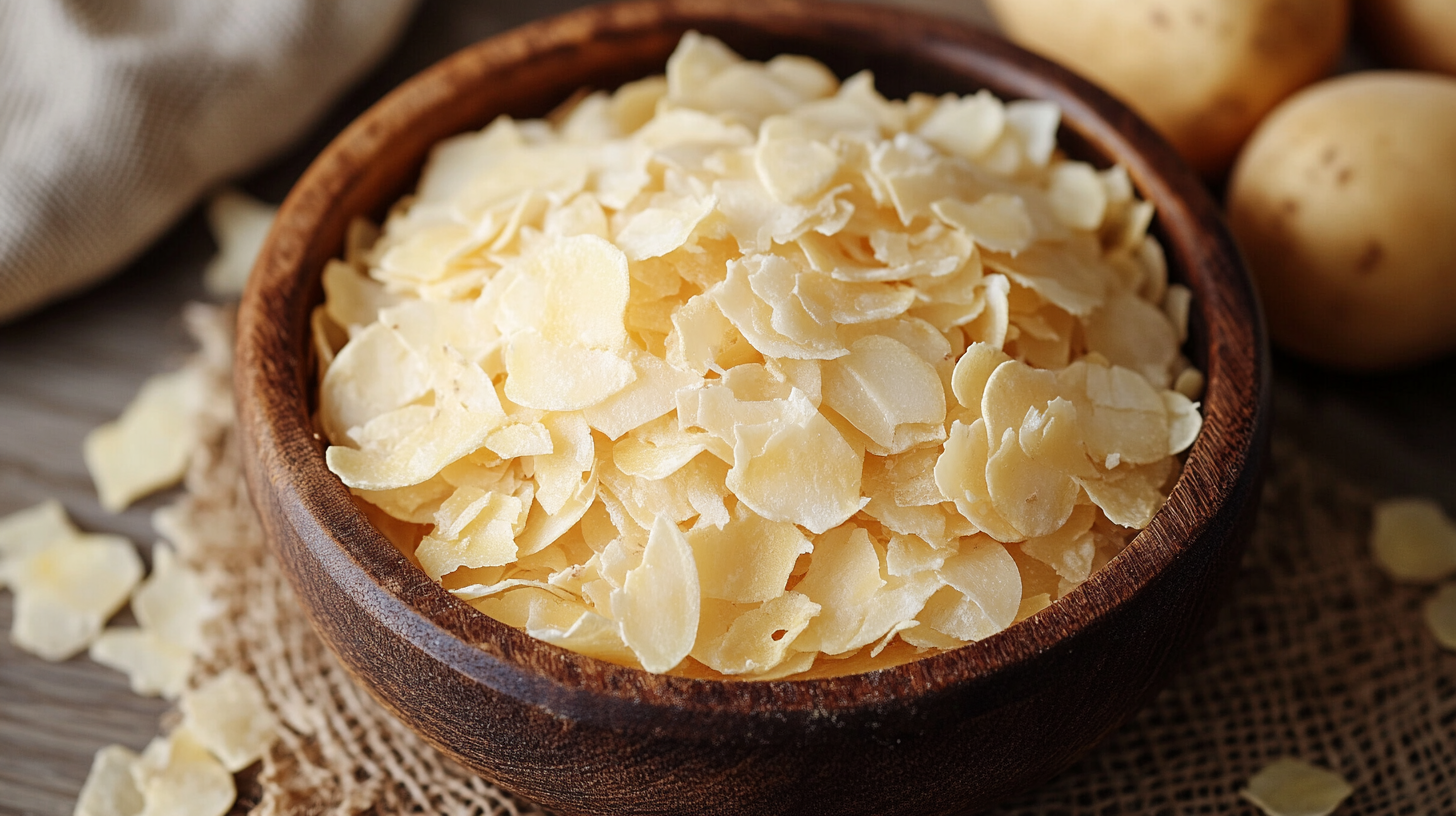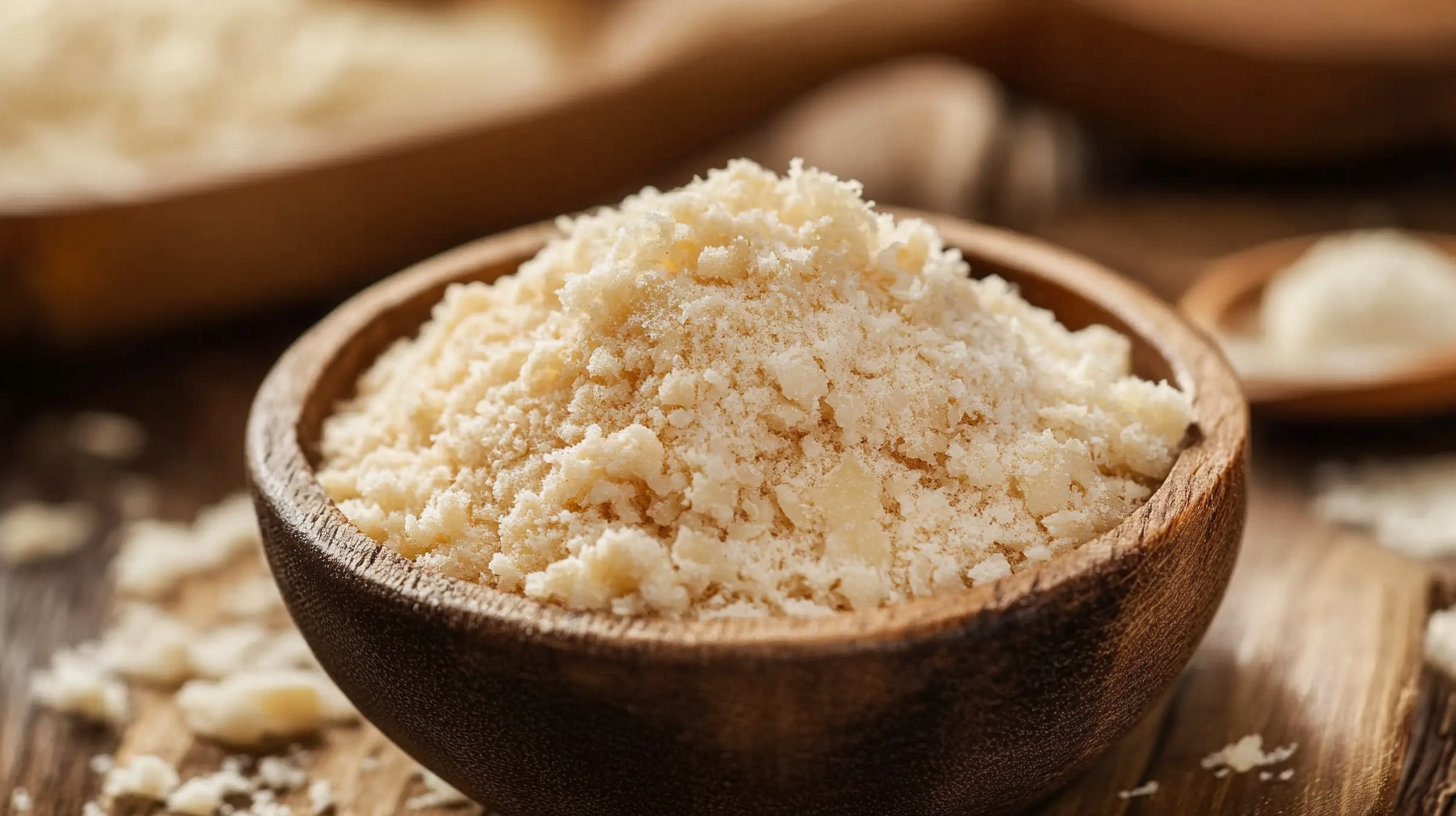
The global demand for convenience foods continues to rise, with the potato flakes market emerging as a significant player in this trend. According to a recent report by Markets and Markets, the potato flakes market is projected to reach USD 3.2 billion by 2025, growing at a CAGR of 5.2% from 2020. This surge in popularity is attributed to the increasing consumer preference for quick meal solutions and the versatile applications of potato flakes in various culinary dishes. As a response to this growing market, the development of a Quality Focused Innovative Potato Flakes Processing Line from China is poised to meet the needs of global markets. By incorporating advanced processing technologies and stringent quality control measures, this processing line not only enhances product quality but also boosts production efficiency, ensuring that manufacturers can keep pace with the soaring demand while maintaining high standards.

The innovative technology behind quality potato flakes production has revolutionized the food processing industry. In recent years, manufacturers have shifted towards using advanced machinery that enhances efficiency while ensuring the highest standards of product quality. These cutting-edge processing lines incorporate automated systems for washing, peeling, and slicing potatoes, significantly reducing human error and contamination. With precise temperature control and state-of-the-art dehydration techniques, the flavor and nutritional value of the potatoes are preserved, resulting in superior flakes ready for diverse culinary applications.
China's commitment to producing high-quality potato flakes is evident in its investment in research and development. By leveraging modern technologies such as infrared drying and vacuum frying, producers are able to achieve a consistent and desirable texture in their potato flakes. Moreover, these innovations not only streamline production but also minimize energy consumption, aligning with global sustainability goals. As manufacturers continue to adopt these state-of-the-art techniques, the demand for quality potato flakes in global markets will continue to rise, benefiting both producers and consumers alike.
| Feature | Description | Benefits |
|---|---|---|
| High Efficiency Processing | Designed to maximize output and reduce energy consumption. | Increased production rates and lower operating costs. |
| Quality Control Systems | Integrated sensors monitor texture, moisture, and color. | Consistently high product quality and reduced waste. |
| Innovative Technology | State-of-the-art processing techniques ensure superior flavor and texture. | Enhanced product appeal in global markets. |
| Automated Operations | Automated workflow minimizes human error and labor costs. | Improved efficiency and profitability. |
| Sustainability Practices | Utilizes eco-friendly materials and processes. | Supports global sustainability initiatives. |
In an increasingly competitive global market, investing in advanced processing equipment for potato flakes can yield significant benefits. According to a report by Market Research Future, the global potato flakes market is expected to reach USD 2 billion by 2025, growing at a CAGR of 5.5%. Utilizing innovative processing technologies not only enhances product quality but also boosts operational efficiency. Advanced machinery ensures consistent texture and flavor in potato flakes, which is crucial for meeting consumer expectations and maintaining brand loyalty.
To maximize the potential of potato flakes production, manufacturers should consider incorporating high-performance dehydrators and automated sorting systems. These technologies minimize waste and optimize the use of raw ingredients. For instance, a high-quality dehydrator can reduce moisture content to less than 5%, significantly extending the shelf life of potato flakes while preserving their nutritional value.
**Tip:** Regular maintenance of processing equipment is key to ensuring long-term efficiency and product quality. Scheduled checks can help in identifying potential issues before they disrupt production. Investing in state-of-the-art processing technology can lead to lower operating costs and improved product consistency, making it a savvy choice for producers aiming to expand their market reach.

Sustainability has become a crucial factor in the food processing industry, particularly in the production of potato flakes. As global demand for potato products continues to rise—expected to reach a market value of over $10 billion by 2027—companies are increasingly adopting eco-friendly practices to minimize their environmental impact. According to a recent report by Research and Markets, sustainable practices in agriculture and food processing can reduce greenhouse gas emissions by approximately 20-30%. This shift not only benefits the environment but also supports the growing consumer preference for sustainable and ethically produced goods.
Innovative processing lines for potato flakes are incorporating energy-efficient technologies and waste reduction strategies. For instance, processes that utilize closed-loop water systems can significantly decrease water consumption—aligning with the industry’s goal to cut water usage by up to 50% by 2030, as highlighted by the Food and Agriculture Organization (FAO). Additionally, advancements in processing techniques allow for more efficient extraction of nutrients while minimizing food waste. By focusing on sustainability, manufacturers are not only enhancing their operational efficiency but also responding to global market trends that prioritize environmental consciousness.
This bar chart illustrates the sustainability practices in the processing line of potato flakes. The data highlights several critical factors including energy consumption, water usage, and waste generation over a year.
The global market for dehydrated potato products is witnessing remarkable growth, with a projected value of $7.72 billion in 2024. This growth trend is expected to continue, as the market is anticipated to rise to $8.38 billion by 2025 and then surge to an impressive $13.49 billion by 2032. The increasing popularity of potato flakes, attributed to their versatility and convenience, is driving this demand across various sectors, including food manufacturing, restaurants, and home cooking.
As consumers seek more convenient food options, the efficiency of innovative processing lines becomes crucial. Quality-focused potato flakes processing lines from China are increasingly meeting the global demand, offering advanced technology that enhances the quality and efficiency of production. This not only ensures a consistent supply of high-quality potato flakes but also caters to diverse culinary applications, reinforcing their position in the global market. The growth trajectory of this sector indicates a significant opportunity for manufacturers to innovate and cater to the evolving needs of consumers worldwide.
In recent years, China has emerged as a key player in revolutionizing the potato flakes manufacturing industry, significantly influencing global markets. According to a report by Fortune Business Insights, the global potato flakes market is projected to reach USD 2.73 billion by 2026, with a substantial portion of production coming from advanced lines in China. These innovative processing lines integrate cutting-edge technology that enhances efficiency and product quality, which is crucial as consumer demand for high-quality processed foods continues to rise.
China's investment in research and development has led to improved processing techniques that ensure optimal flavor and texture in potato flakes. A study from MarketsandMarkets indicates that the demand for dehydrated potato products is expected to grow at a CAGR of over 4.5% during the forecast period. This growth is largely driven by China's commitment to quality-focused production and its ability to meet international standards. As such, Chinese manufacturers are not only catering to local markets but are also establishing a robust export presence, reaffirming their pivotal role in the global supply chain for potato flakes.
